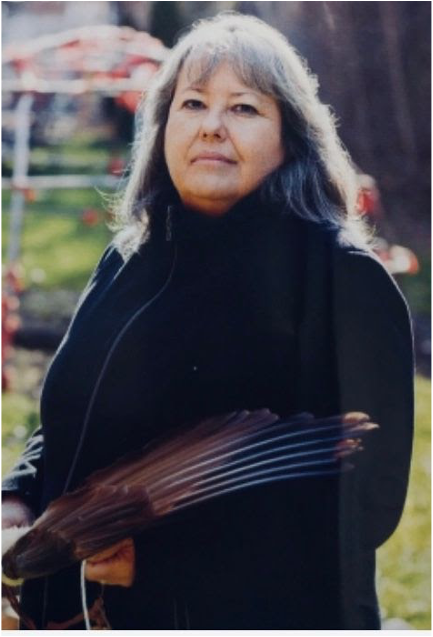Decolonizing and Uncolonizing Leadership
How do we undo and disrupt coloniality and engage in decolonizing and uncolonizing leadership?
As we reimagine leadership practices and processes, we hold up the necessary tensions and complications inherent in the terms decolonizing and decolonization. Tuck and Yang (2012) assert that decolonization necessarily includes land repatriation given the historical and continued dispossession and displacement of Indigenous peoples and land, and the refusal to acknowledge Indigenous sovereignty. Activist and author, Tanya Rodriguez (2020), builds on this notion and asserts that decolonization is for Indigenous people only, not for settlers on stolen land who benefit from the ongoing oppression of Indigenous peoples. Rodriguez (2020) urges settlers to consider using the term “uncolonizing” when referring to processes of detaching and disconnecting from colonial vestiges. This of course is further complicated given the complicated, forced, and violent ways in which some of us have come to these lands, whether forcibly brought to these lands through the violence of the transatlantic slave trade and indentured servitude, fleeing dangerous experiences elsewhere, or other complicated histories and presents of entangled colonialisms. For example, Tope Adefarakan (2018), an Indigenous African woman of Yoruba descent, grapples with what it means to be “an Indigenous African on land to which one is not Indigenous,” arguing for more flexible imaginings of Indigeneity (p. 230). While colonization is necessarily about land and space, Asante (2006) reminds us that colonizers “did not only seize land, but also minds” (p. ix).
With these complications in mind, this podcast applies notions of decoloniality to our understanding of leadership. Decoloniality challenges Eurocentric logics and ways of knowing and promotes the re-emergence of multiple Indigenous ways of knowing (Mignolo & Walsh, 2018). While global Indigenous knowledge systems are diverse and informed by context, time, and space, many of these teachings promote similar logics of interconnectedness, relationality, spirituality, reciprocity, community, and humility. We draw on Dei’s (2019) anti-colonial theory and praxis, which explores many of the ideas above and considers the deeply interconnected relations of the living-nonliving-human-more than human, the past-present-future, and the body-mind-spirit. We interrogate intersecting systems of power (Dei & Asgharzadeh, 2001) and explore connections between colonialism, white supremacy, capitalism, cis-heteropatriarchy, Christian hegemony, modernity, and more. Given that white supremacy and epistemicide are central to coloniality, this work calls us to identify, name, and resist these constructs (Wright, 2022).
In decolonizing spaces, we resist the colonial status quo, and value and honour local experiences, knowledge systems, and voices, being accountable and responsible to students, families, and communities that have been marginalized in schooling processes (Dei, 2019). Lopez (2020) states, “decolonized education is about renewal, restoration, and hope. It’s about finding new leadership approaches for engaging students, communities and educators to bring about transformative change” (p. 69). Lopez (2020) asserts that decolonizing requires, “resisting the ways in which colonial education separates the body from the mind of educators, and positions knowledge as emanating from the external” (p. 70). Decolonizing and uncolonizing approaches to leadership encourage the expression and embodiment of knowledge that has been passed on through the land, living creatures, spiritualities, cultures, histories, and ancestors. This knowledge must be accompanied by intentional actions that recognize and respond to the loss of Indigenous land and life, both past and present (Howard, 2006; Shah, 2021). As Dei & Adhami (2022) share, “Educational leadership is working to create spaces in different learning sites for multiple ontologies and epistemologies to thrive and coexist” (p. 786). In their literature review on decolonizing approaches to leadership, Khalifa et al. (2019), identify five themes found in decolonized leadership praxis:
(1) the prioritization of self-knowledge and self-reflection,
(2) the empowerment of community through self-determination,
(3) the centering of community voices and values,
(4) service based in altruism and spirituality, and
(5) approaching collectivism through inclusive communication practices.
Connecting to these themes and realizing that our bodies are sites of knowing and sites of practice (Dei & Adhami, 2022), we acknowledge that there are a multitude of ways of knowing and being and multiple truths that need to be negotiated, contested, and reconciled (Dei & Adhami, 2022).
Finally, as we seek to decolonize and uncolonize, in troubling the idea that not everything is knowable, we consider these reflections by Andreotti et al. (2015) in relation to leadership:
“Yet, in education, the righting of wrongs is often understood as dependent on more knowledge and better analyses. The assumption may be that, with more and better information, we will be able to engineer something to right the wrongs we have identified. But what if these wrongs are not a result of ignorance but of something more collective and much deeper that we are all implicated in? What if the ‘righting of wrongs’ requires some wronging of perceived rights, like: displacing ourselves from the center of the world; interrupting our desires to look, feel and ‘do’ good; exposing the source and connections between our fears, desires, and denials; letting go of our fantasies of certainty, comfort, security, and control; recognizing and affirming (rather than disavowing) that we are already “entangled, vulnerable, open, non-full, more than and less than” ourselves (Moten, 2014); and reaching the edge of our knowing and being – and jumping with our eyes closed. What would decolonization look like, then?” (p. 36-37).
We wonder how this might manifest in educational leadership spaces. Wright (2022) states that “educational leaders need to be less hierarchical and prioritize developing programs that bring in ethnic studies and epistemologically diverse educators and curriculums” (p. 717). To actualize this, “we must not shy away from discourses of the struggle, resistance, and search for new futures as we refine our practices and fulfill our responsibilities of leadership” (Dei & Adhami, 2022, p. 809).
Reflection Questions:
- How might understandings of interconnectedness and relationality influence leadership practices?
- How might we unpack, unsettle, and sift through current educational leadership competencies to decolonize and uncolonize?
- How do we lead with love and humility, honouring all our humanity through relational accountability?
- Who do we need to be as leaders to lead in ways that disrupt coloniality?
- How might we apply this understanding to the work we do in communities, schools, and academies?
References
Adefarakan, T. (2018). Integrating body, mind, and spirit through the Yoruba concept of Ori: Critical contributions to a decolonizing pedagogy. In S. Batacharya & Y.R. Wong (Eds.) Sharing breath: Embodied learning and decolonization. Edmonton, AB: AU Press.
Andreotti, V., Stein, S., Ahenakew, C., & Hunt, D. (2015). Mapping interpretations of decolonization in the context of higher education. Decolonization: Indigeneity, education & society, 4(1), 21-40.
Asante, M. (2006). Forward. In G.J.S. Dei and A. Kempf (Eds.), Anti-colonialism and education: The politics of resistance (pp. ix-x). Sense Publishers.
Cranston, J. & Jean-Paul, M. (2021). Braiding Indigenous and racialized knowledges into an educational leadership for justice. In: F. W. English (Ed.), The Palgrave handbook of educational leadership and management discourse (pp. 1-27). Palgrave Macmillan. https://doi.org/10.1007/978-3-030-39666-4_120-1
Dei, G. J. S. (2019). Foreword. In A. Zainub, Decolonization and Anti-colonial Praxis (pp. vii-x). Leiden, The Netherlands: Brill.
Dei, G. J. S. & Adhami, A. (2022). Coming to know and knowing differently: Implications of educational leadership. Educational Administration Quarterly, 58(5), 780-809. https://doi.org/10.1177/0013161X211036079
Dei, G. J. S. & Asgharzadeh, A. (2001). The power of social theory: The anti-colonial discursive framework. The Journal of Educational Thought, 359(3), 297-323.
Fernández, A.E. (2019) Decolonizing professional development: A re-humanizing approach. Equity & Excellence in Education, 52(2-3), 185-196.
Hailey, J. (2008). Ubuntu: A literature review. Document. London: Tutu Foundation.
Howard, P.S.S. (2006). On silence and dominant accountability: A critical, anti-colonial investigation of the anti-racist classroom. In G.J.S. Dei and A. Kempf (Eds.), Anti-colonialism and education: The politics of resistance (pp. 43-62). Rotterdam, The Netherlands: Sense Publishers.
Khalifa, M., Khalil, D., Marsh, T., & Halloran, C. (2019). Toward an Indigenous, Decolonizing School Leadership: A Literature Review. Educational Administration Quarterly, 55(4), 571–614.
King, T. (1992). All my relations: An anthology of contemporary Canadian native fiction. University of Oklahoma Press.
Lopez A.E. (2020) Introduction: Toward a theory of decolonizing educational leadership. In: Decolonizing educational leadership, (pp. 1-9). Palgrave Macmillan. https://doi-org.myaccess.library.utoronto.ca/10.1007/978-3-030-62380-7_1
Lopez, A.E. (2021). Examining alternative school leadership practices and approaches: A decolonising school leadership approach. Intercultural Education, 32(4), 359-367. https://www.tandfonline.com/doi/abs/10.1080/14675986.2021.1889471
Mignolo, W., & Walsh, C. E. (2018). On decoloniality: Concepts, analytics, praxis. Durham, NC: Duke University Press.
Ngunjiri, F. W. (2010). Lessons in spiritual leadership from Kenyan women. Journal of Educational Administration, 48(6), 755–768.
Wright, J. (2022). The deep roots of inequity: Coloniality, racial capitalism, educational leadership, and reform. Educational Administration Quarterly, 58(5), 693-717. https://doi.org/10.1177/0013161X211029483Ngunjiri, F. W. (2010). Lessons in spiritual leadership from Kenyan women. Journal of Educational Administration, 48(6), 755–768.
Panelists
Ann E. Lopez
Dr. Lopez is a professor of educational leadership and policy at the Ontario Institute for Studies in Education, University of Toronto. She is the Director of the Centre for Leadership and Diversity, and Provostial Advisor access programs, and former Academic Director of Initial Teacher Education. A former classroom teacher and school administrator, Dr. Lopez’s scholarship focuses on issues of equity, culturally responsive, antiracist, and decolonizing educational leadership in K-12 schools, higher education, and school leadership across contexts. She has written several books, book chapters journal articles, and presented her research locally and globally. Her latest book is entitled, Decolonizing Educational Leadership: Exploring Alternative Approaches to Leading Schools. She is the co-editor-in-chief of the Journal of School Leadership, co-series editor, Studies in Educational Administration, and serves on several boards. She is the immediate past President of the National Association for Multicultural Education. Dr. Lopez is the 2020 recipient of the Award for Distinguished Contributions to Teaching at the Ontario Institute for Studies in Education. Born and raised in Jamaica, Dr. Lopez’s dedicates her teaching and scholarship to creating more just and equitable schools, particularly for those who have been historically underserved in the education system.
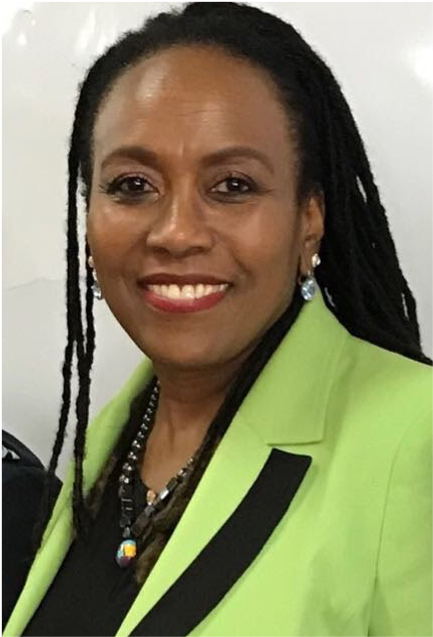
Pamala Agawa
Pamala is Anishinaabe-kwe from Batchewana First Nation. She is a mother, a daughter, a partner, an auntie, a niece, a cousin, a granddaughter and a sister. She is a coach and a lifelong learner who seizes every opportunity possible to grow as a person and an educator. Currently, her interests are focused in decolonizing instructional practice to create amazing spaces for learning for all (especially Indigenous youth). She acknowledges this is a journey and this is rooted within the colonial/western structure we have all adopted as a system in public education. She believes with intentional practice, learning and facilitation we can support leaders and decision makers to shift their pedagogical practice to better serve all students and families.
She loves working alongside and in service of our youth and is committed to being a strong advocate and accomplice for them.
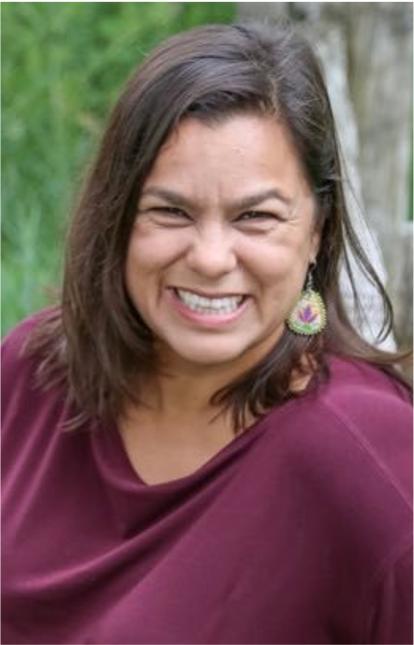
Aina-Nia Ayo’dele
Aina-Nia Ayo’dele is an Ancient Wisdom Teacher, Leadership Coach and Spiritual Liberation Activist on a mission to influence change by inspiring individuals to Re-Membering their Power. Over a decade ago Aina-Nia founded Sacred Women International and the life transformational process, Sacred Leadership Training. She is a well sought after public speaker and has presented to academic, corporate, Faith and civil society audiences across Canada, USA, the Caribbean and Ghana on issues of gender, racial equity and African indigenous practices.
Aina-Nia is currently the Director of Community Resources at the City of Toronto, Canada and was integral to the creation of the Toronto Action Plan to Confront Anti-Black Racism and in 2018 established North America’s first government sanctioned strategy and permanent office to address anti-Black racism.
In 2018 Aina-Nia was named one of the 100 Most Accomplished Black Canadian Women in Canada. In 2016 she was named one of the Top 100 Black Women to Watch in Canada. She has been recognized by the Ontario provincial government for her contributions to community in 2015 and in 2008 was nominated as one of Toronto’s Most Inspiring Women. Most recently Aina-Nia was recognized as one of Jamaica’s 58 Best at Home and Abroad in honour of Jamaica’s 58th Independence.
Aina-Nia is featured in the Sacred Women International executive produced film, Remembering Her Power. The film premiered at the 2018 Parliament of World Religions in Toronto, Canada and has been featured documentary on Global Africa Television Network as well as the final feature film at LA’s PTA film festival 2020. Aina-Nia is also featured in the YouTube web series, Souls of Women.
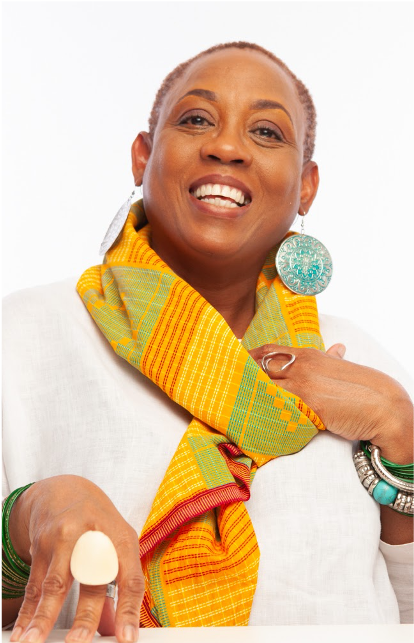
Nick Bertrand
Nick is a proud Kanyenkaha:ka and member of the Mohawks of the Bay of Quinte. He is a father, partner, uncle, and educator. Coming from a background that has been deeply impacted by colonization, sharing truth alongside messages of hope and resiliency through the vehicle of education is what interests and drives Nick.
Nick has worked in education for over 14 years in many roles including: an OCT certified teacher, a school board Indigenous Education Lead, and more recently as an Education Officer in the Ministry of Education. In September 2015, Nick was seconded to the Ministry of Education where he had the opportunity to work collaboratively on the development of Ontario’s curriculum strategy for the Calls to Action of the Truth and Reconciliation Commission. Nick currently works in the Indigenous Education Office within the Ministry of Education.
Grounded by the incredible support and generosity of Elders, Knowledge Keepers, community, family, and friends has allowed Nick to share space in a variety of educational settings. In life and in the education world, to move forward with a good mind, Nick has always believed that the foundation of this journey is rooted in strong relationships built on respect, understanding, and reciprocity.
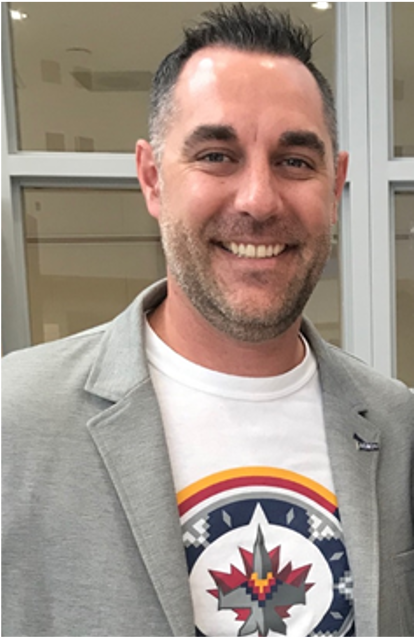
Kahontakwas Diane Longboat
Kahontakwas Diane Longboat (BA, BEd, MEd) is a member of the Turtle Clan, Mohawk Nation at Six Nations Grand River Territory, Canada and a citizen of the Haudenosaunee Confederacy. She is a ceremonial leader, traditional teacher and healer. Since 2013, Diane has served as Elder for the Centre for Addiction and Mental Health (CAMH), Canada’s largest and leading institution for clinical services and research for mental well-being. Diane lead the development of the Ceremony Grounds for CAMH to establish the Sweat Lodge, Sacred Fire, and medicine gardens, including the policy development required to support traditional Indigenous healing as a standard of practice. Her work also involves organizational strategy and advancing the CAMH Truth and Reconciliation Action Plan.
Diane is the founder of Soul of the Mother, a Healing Lodge on the shores of the Grand River at Six Nations Grand River Territory, with extensive relationships with First Nations in Canada, the US and globally. Diane is also the founder of the First Nations House (Office of Aboriginal Student Services and Programs) at the University of Toronto.
As a professional educator with a Master’s degree in education, Diane has taught at universities and lectured nationally and internationally, on the topic of traditional Indigenous knowledge systems and spirituality as the fuel for innovation. She has published extensively on Indigenous education law and policy for Ontario Native Counselling Association, the Chiefs of Ontario and the Assembly of First Nations.
In 2017 and 2018, Diane was the Indigenous Education Advisor to the Premier of Ontario, Kathleen Wynne and the Ontario Minister of Education (Minister Naidoo Harris and Minister Hunter). Diane currently serves on the Dean’s Strategic Advisory Group at the Ontario Institute for Studies in Education.
Recently, Diane was Co-Chair for the development of the Indigenous Peoples Program at the Parliament of the World’s Religions global gathering in Toronto for 10,000 delegates in November 2018. She is a faculty member of Four Worlds University and a Commissioner for the Digital Global Commission on Justice and Healing. Diane serves on many Elders Councils nationally and internationally.
